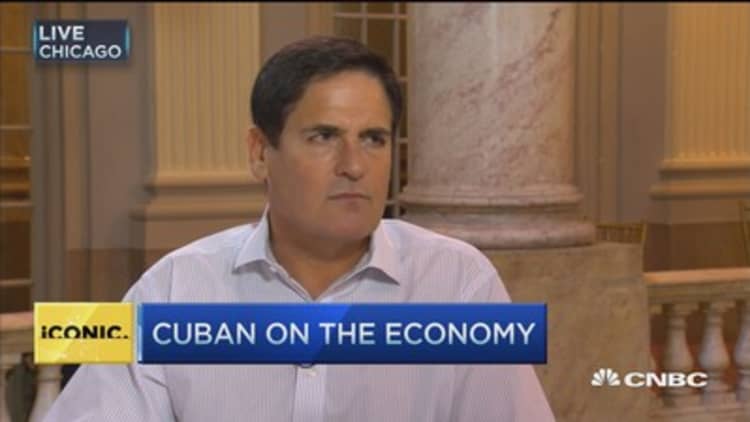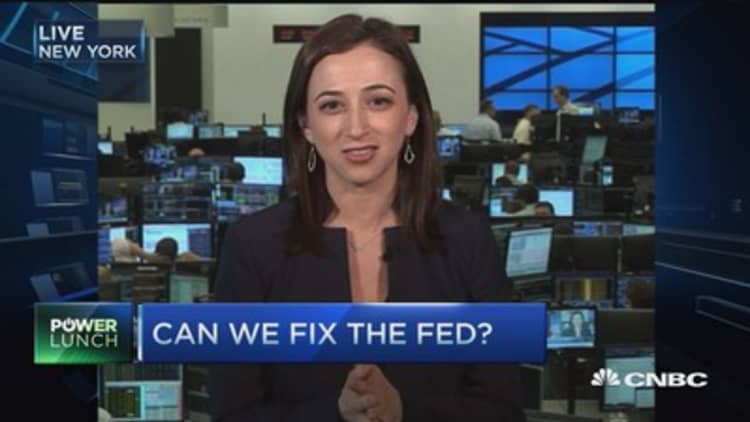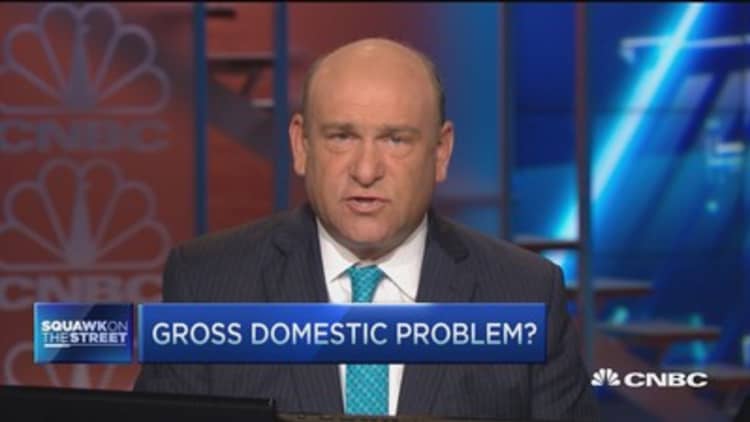


Growth in the first quarter could be substantially stronger than the government reported.
Economists at the San Francisco Federal Reserve, building on research conducted by CNBC, found that if first quarter were seasonally adjusted properly, it would have been reported as 1.8 percent growth, not 0.2 percent.
The paper comes after CNBC reported results of an in-depth look at first quarter growth and found that it has been substantially weaker than the other quarters over a span of 30 years. The results were confirmed by four other economists at the time.
Read More Why is the economy always so weak in the first quarter? Nobody really knows
Since then, several other Wall Street and academic economists have come to similar conclusions and begun searching for the reasons and to figure what the right growth numbers should be. Barclays arrives at the same number of 1.8 percent growth as the San Francisco Fed for this quarter by using alternative seasonal adjustments. The bank says that some specific factors, such as fears over Europe or severe weather, can explain some of the first-quarter weakness. But they conclude that the first-quarter shortfall "is more systematic."
Economists have begun to focus on the issue of "residual seasonality," which is like a nonspecific diagnosis from a doctor. It means that seasonally adjust data still shows seasonal patterns. It suggests a need to alter the data further to take account for seasonality or to change the seasonal adjustments that are used.
CNBC found that over the past 30 years, first-quarter growth has been by far the weakest of the four, averaging just 1.87 percent while the economy has grown 2.7 percent, according to the CNBC analysis. Since 2010, it has been especially depressed, averaging a paltry 0.55 percent while the economy grew 2.3 percent. But the data also showed a modest bounce back in the second quarter, suggesting that growth is not under-reported overall, just not accurately distributed among quarters.
Read MoreTom Brady isn't the only one that should fear deflation—the economy should too
In response to the CNBC story in April, the Bureau of Economic Analysis said it is studying the issue and hopes to announce changes in July when it puts out annual revisions to growth.
Meanwhile, economists at the Federal Reserve board of governors found weakness in the first quarter, but no evidence of residual seasonality. However, they only studied a 10-year period.


